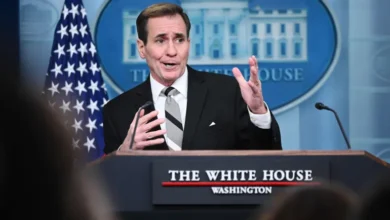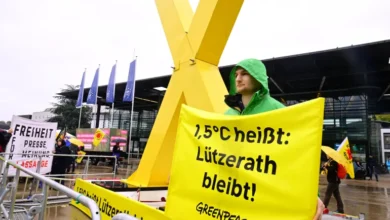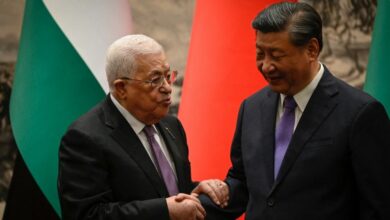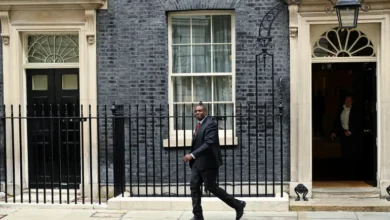The Biden hug
Marwan Bishara
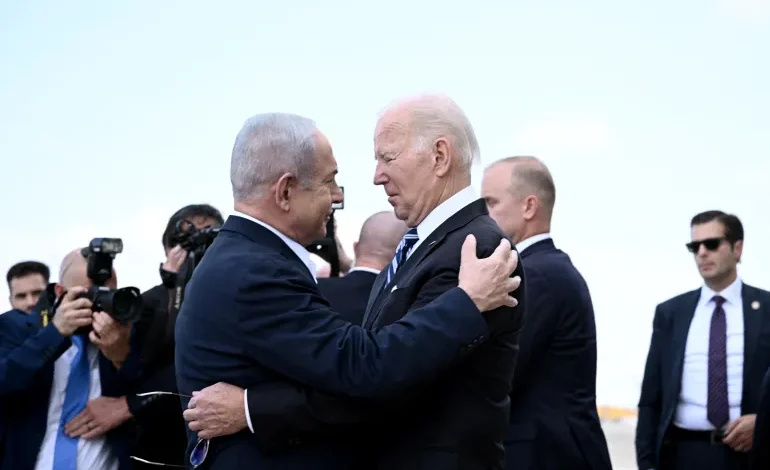
Marwan Bishara
Joe Biden’s trip to the “Jewish state” was supposed to match the one he made earlier this year to war-torn Ukraine in terms of symbolism and substance, considering it was only the second time an American president visited a war zone not under the control of the US military. Indeed, during his trip, the American president expressed similar sympathy and unconditional support for Israel as he had done for Ukraine.
But unlike his trip to Eastern Europe, where during a stop in Poland Biden successfully rallied NATO against Russia, the president’s Middle East trip was undermined by the cancellation of a scheduled Arab-American summit in Jordan, following the bombing of the al-Ahli Arab Hospital Baptist in Gaza that killed almost 500 Palestinians. The Arab leaders condemned Israel’s indiscriminate bombing of Gaza, and rejected America’s proposals for a “humanitarian corridor” that would de facto lead to the expulsion of Palestinians from their homeland.
Unlike the huge crowds that cheered Biden on in Warsaw in February, Jordanians, like other Arab and Muslim nations, demonstrated en masse against Israel and the United States this week. Furthermore, Biden’s warnings against widening the Gaza war to the region fell on deaf ears in Iran and elsewhere, as border clashes between the Lebanese Hezbollah and the Israeli army escalated, and Israel bombed two airports in Syria, threatening a wider conflict.
The regional setbacks overshadowed Biden’s short journey, and highlighted the central difference between Ukraine and Israel. While both are US allies, Ukraine is occupied and brutalised by Russia, while Israel is an apartheid state and a decades-long occupier that brutalises the Palestinians. Lumping them together as victims, because they are US clients, is terribly hypocritical.
But the president remained undeterred by Middle Eastern rage. He stayed on message; repeating his praise for righteous Israel, highlighting its right to defend itself against the “evil”, ISIS-like Hamas movement, and underlining America’s unequivocal backing for the Netanyahu government. He also blamed the Palestinians for the hospital bombing.
Needless to say, the president could have made these statements from the White House, saving him time, effort and risk. Which begs the question, why bother travelling across the seas to embrace Israelis in person?
Biden is famously, or infamously, known to be a big hugger. And as soon as he landed in Israel, he rushed to hug Israel’s anxious prime minister as well as its president. It was a classic hug; a warm, loving hug between fellow Zionists, followed by a casual homie handshake. It was an emotional greeting, which the gullible media covered with matching emotion.
But the hug of an American president is never innocent. When a superpower hugs a fragile ally in shock, whether it is Ukraine or Israel, it means, both to shelter it and also shape its behaviour, accordingly. In other words, what looked like a classic Biden hug, was also a strategic “bear hug”.
In that way, Biden displayed unequivocal support for Israel, dispatched two aircraft carriers to the Eastern Mediterranean, expressed his sympathy with Israeli suffering, committed to unprecedented additional assistance of some $14 billion on top of the $4bn-plus in annual military aid. But the president also cautioned Israel against repeating US mistakes after 9/11 out of rage, warned against the reoccupation of Gaza, calling it “a big mistake”, appealing to Israel to avoid harming Palestinian civilians and allowing for humanitarian aid to enter Gaza.
